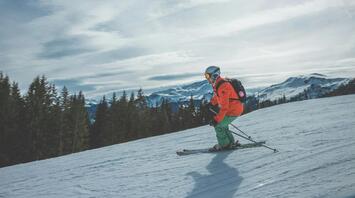Nevis Range Delays Winter Season as Climate Change Threatens Snow Cover in Europe

The popular Scottish ski resort Nevis Range has delayed the start of its winter season until February, citing adverse weather conditions and a lack of snow. Located near Fort William, the resort traditionally opens from late December to April, but in recent years, it has only operated a few days in January due to frequent storms and changing climate patterns. The postponed season will allow for necessary maintenance and help conserve resources to ensure stable snow cover in February and March.
Climate-related issues are not unique to Nevis Range; other mountainous areas in Scotland are also affected. For instance, the snow patch on Braeriach Mountain, which remained a feature of the region for over 300 years, has melted completely for the fourth consecutive year. This trend illustrates that even long-standing natural snow formations are disappearing due to rising temperatures and unstable winter conditions.
The Scottish Avalanche Information Service (SAIS) also reports that frequent winter storms cause short periods of heavy snowfall followed by warmer spells. This climate pattern complicates snow retention at ski resorts and increases the risk of avalanches. According to SAIS, these rapid weather shifts lead to snow instability, posing risks for winter sports and negatively impacting the tourist season.
Climate change impacts ski resorts not only in Scotland but across Europe. According to research published in the journal Nature Climate Change, more than half of European ski resorts could face severe snow shortages if average temperatures rise by 2°C above pre-industrial levels. With a 4°C increase, nearly all European resorts would be at risk of insufficient snow cover.
For tourists planning winter vacations, these changes mean they must plan carefully and be prepared for unpredictable weather conditions. It is advised to regularly check resort updates regarding snow conditions and any potential schedule changes. Additionally, alternative winter activities less reliant on snow, such as hiking, sledding, or visiting cultural events in the region, should be considered.
Overall, climate change presents significant challenges for winter tourism. Ski resorts are adapting to new realities by implementing conservation measures and adjusting the length of their seasons. Tourists should also remain flexible in their plans and open to new types of winter recreation to make the most of their travels despite these climate challenges.



















